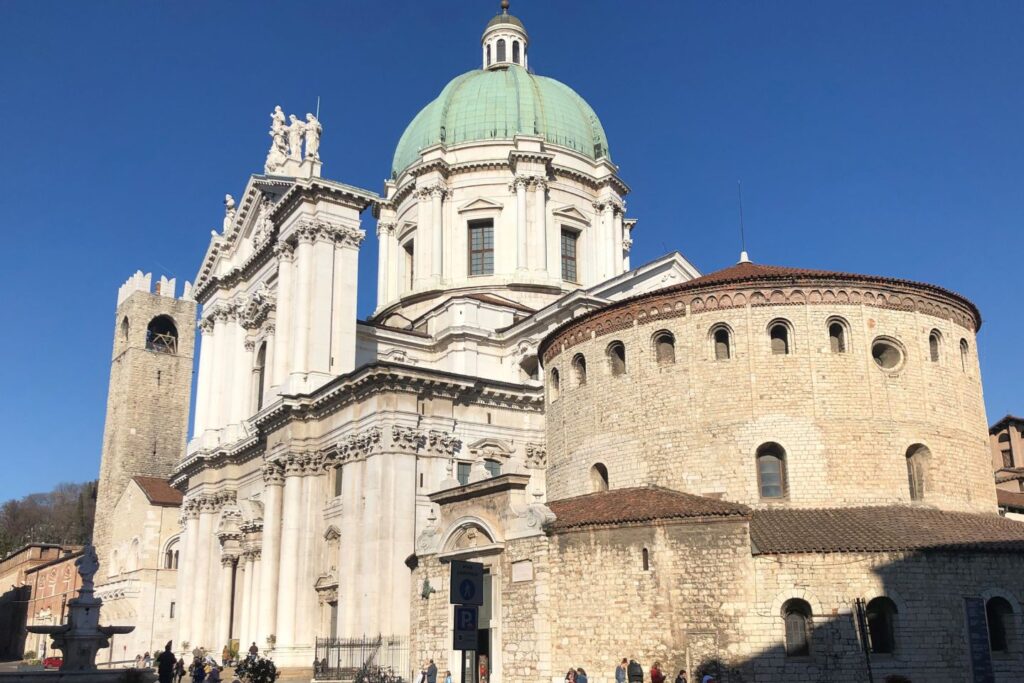
Visitors to Italy fall in love with the amazing food, natural beauty, centuries of history and art, and the distinctive Italian culture. David Adams, a U.S. Air Force retiree, made Italy his home.
David’s wife, Adri, is Italian, and after a post-military career working as a civilian at military bases in Germany, David fully retired in 2018. He and Adri moved to San Paolo, a small town in northern Italy, where they enjoy the slow pace and high quality of life.
In this candid Q&A with David, part of our Expat Retiree interview series, learn what it’s like living in Italy, the best things about it, and what you should know if you’re considering moving there!
Contents (click to expand)
When did you retire from the military, and when did you move to Italy?
I was stationed at Ramstein AB, Germany when I retired from the Air Force in December 2005.
After 45 days to decompress, I started work as a contractor for the Air Force at Ramstein. I held various contractor and civilian government jobs at Ramstein and Spangdahlem AB until I completely retired in December of 2018.
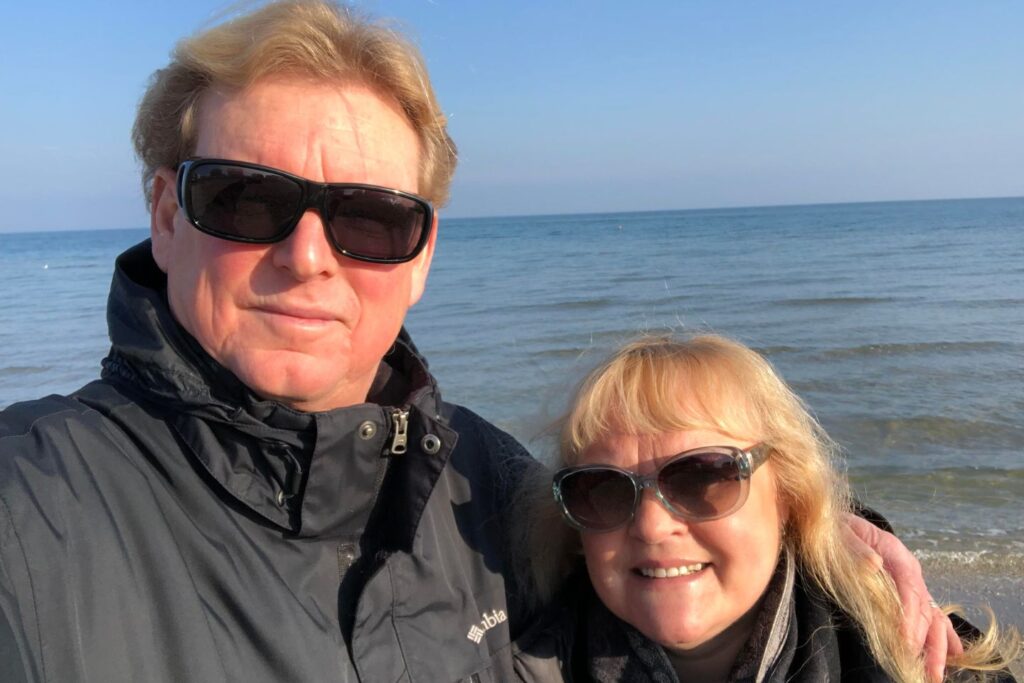
As had been the plan for years, my wife and I then headed to a small village in the Lombardia region of Italy and have been here since.
Why did you decide to live overseas after military retirement, and how did you choose Italy?
We had decided in the late 90’s that we would retire to Italy and planned accordingly leading up to final retirement. The main reason for choosing Italy was because my wife is Italian. She is from the area we retired to.
Additionally, I had long said that I would not return to California upon retirement due to the cost of living and taxes there. Also, I was the youngest and the black sheep of the family due to joining the military and spending the majority of my career overseas.
Those were also considerations, but it was mainly due to my wife’s Italian heritage.
Why did you choose your city?
We live in a small village called San Paolo in the province of Brescia. My father-in-law was born and raised here, and he built a single-family home with a bit of land. After he passed, my wife inherited the house here in San Paolo.
That went a long way towards helping us decide where we would live here in Italy.
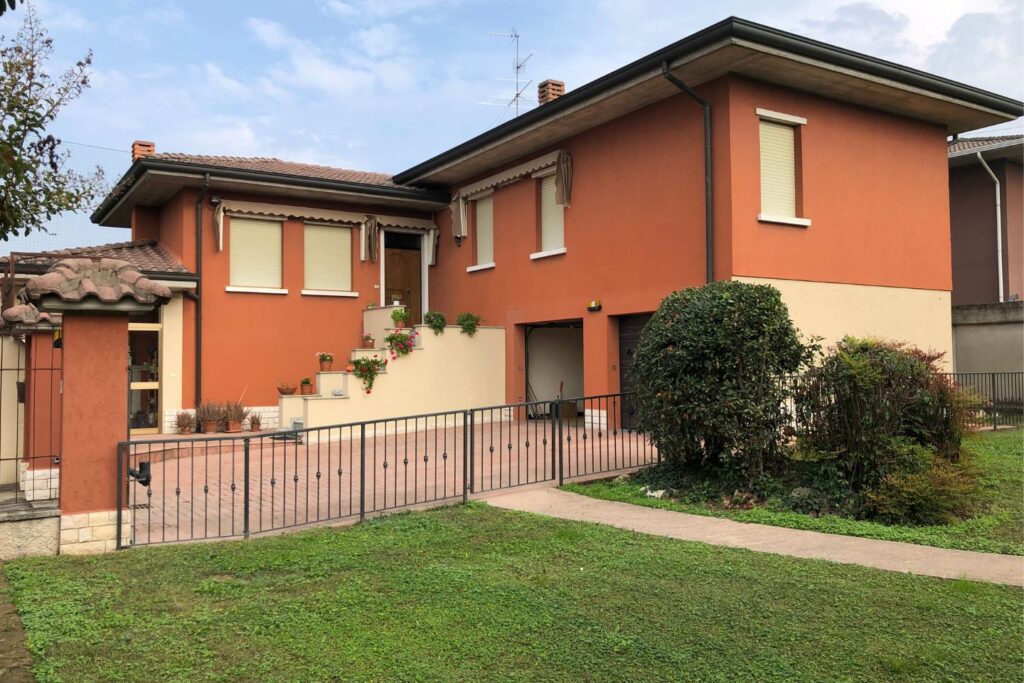
What was the application process for obtaining your Italian residence permit?
When we initially moved to Italy in 2018, I was on the civilian version of terminal leave, so I still had my ID card and an active Status of Forces Agreement (SOFA) stamp in my passport. Therefore, I was not required to have a visa to start the process to get me into the Italian system.
(Note from Poppin’ Smoke for non-military readers: terminal leave is the final leave a member of the armed forces may use immediately before separation or retirement.)
The first step in getting my residency was going to the local city hall. There was a form that my wife had to fill out certifying that I had a place to live.
Normally, the local police will then come to the house listed on the form to make sure you actually live there. However, since I was already known in town, they skipped that step.
The next step was to go to the police headquarters in Brescia to start my Carta di Soggiorno (Non-EU permanent residence card) application. They gave us a list of the paperwork we needed and an appointment to apply for the actual Soggiorno a couple of months later.
| Related Reading: Moving to Italy on a Student Visa
At the second appointment, they paid particular attention to my passport, income, and marriage certificate. I was then given the receipt that I had applied for the Soggiorno, fingerprinted, and given another appointment a couple of months later to actually pick up the Soggiorno.
With the Soggiorno receipt from the police headquarters, we went back to our city hall and filled out the required paperwork for my residency and Italian ID card.
It is important to note here that my wife’s Italian citizenship and residency certainly helped the overall process. It took about 6 months total to get me fully into the Italian system, which included my ID card, residency permit, and health card.
What facilities and services on U.S. military bases in Italy can you use as a retiree?
As a retiree in Italy, you are authorized full access to the BX/PX, commissary, space “A” medical, and pharmacy.
You are also authorized an APO address and PO Box. However, you are limited to only sending and receiving letter sized mail through the APO (per the DoD postal reg).
There are no AAFES gas stations on the installations here and as a retiree, you are not authorized to have a tax-free gas card.
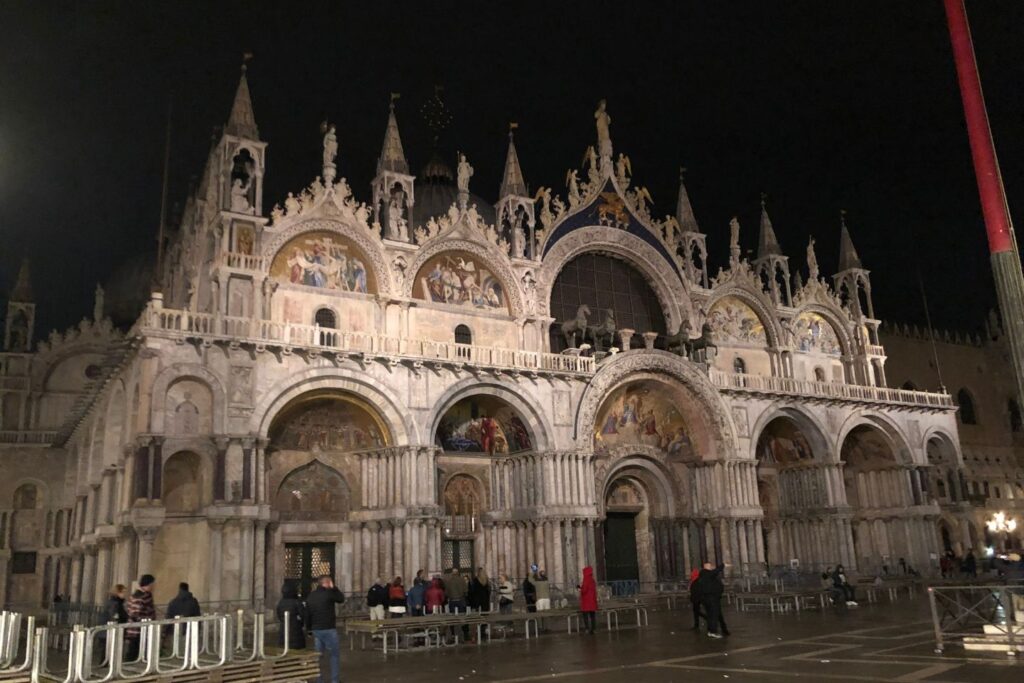
The potential issue with base access is local base restrictions for allowing retirees on base.
For example, Caserma Ederle in Vicenza allows full access once you are registered in the Installation Access Control System (IACS), so you can easily get on base and use the services previously mentioned.
Aviano AB has changed their process for retirees and other visitors who are not assigned to the base. They must complete an Installation Access Request (IAR) form 3 to 4 weeks prior to their visit. (More details available on Aviano’s website).
How does the cost of living in Italy compare to the U.S.?
That’s a tough one. We haven’t lived in the United States since 1994!
However, with that said, the price of gas in Italy is outrageous compared to the States. With the exchange rate factored in, we have been paying between $6 and $8 per gallon.
Since we have few expenses (house and cars are paid for, no children, no consumer debt), we live comfortably on my military and small GS pensions without having to dip into investments. So, without major expenses, you can easily manage on around $2K or so a month.
If you had some of those other expenses, I would say closer to $2.5K but that is much higher than the average salary here. If lucky, most workers seem to make between 1200 and 1500 Euro/month, but most are under 1000 Euro/month and they get taxed to death.
We budget 450 Euro per month and 250 USD per month for food but don’t always use that much. Especially the dollars, since we seldom go to the commissary once a month.
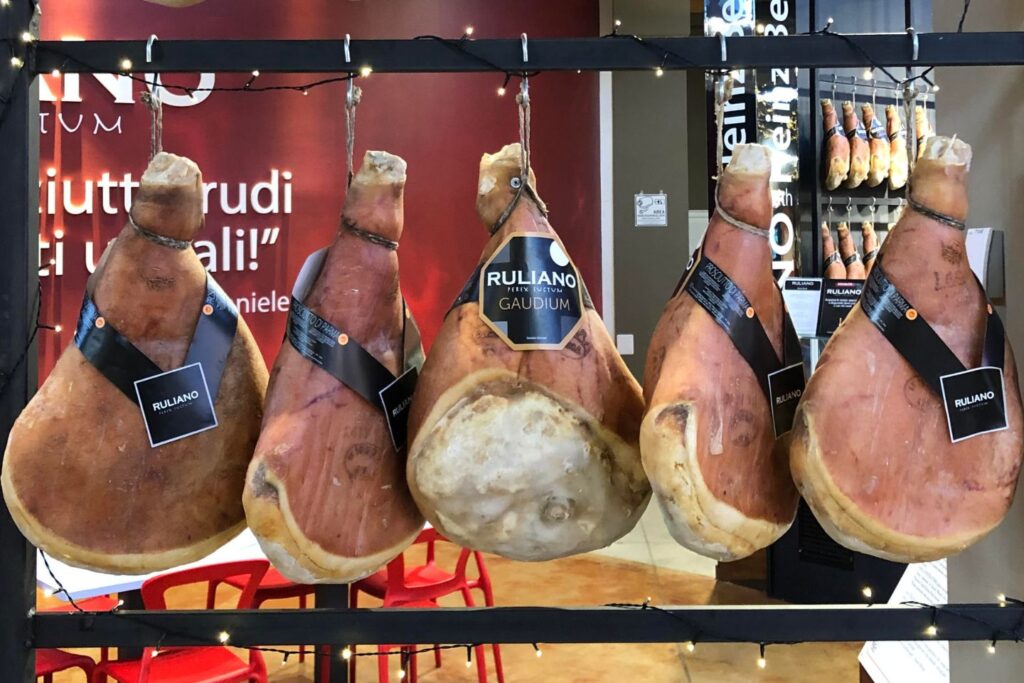
Prices vary considerably depending on the supermarket and the quality of the food you want. You can get cheaper cold cuts, pasta, coffee, etc., but it all depends on your tastes and budget. We don’t skimp on quality, so our budget may be a bit high.
Housing is also variable, depending on if you live in rural areas or small towns vs major cities like Milan, Venice, Florence, Rome, etc. Also, prices vary considerable from northern Italy to southern Italy and get cheaper as you go to the southern regions.
At a minimum, I would say you might find a small place for 600 to 750 Euro a month, and they could easily go up from there.
| Related Reading: Living in Portugal as an American
We budget 250 Euros per month for gas and electric but again, do not necessarily use it all every month. The gas runs the heat and stove, but we also have an American gas dryer, which is extremely rare, so our cost will probably be a bit higher.
Electricity runs everything else, and we have air conditioning throughout most of the house, which is also rare. Couple the air conditioning with running a fan at night year round and yet again, I suspect our costs run a bit higher than most.
Italy just raised the cost of gas and electricity significantly the first of the year, so that will have an impact going forward.
Not surprisingly, wine is much cheaper than beer here, but beer is getting much more popular with the younger people. A 0.4 or 0.5 beer will run anywhere from 4-6 Euro depending on the place and type of beer. Craft beer is making a dent into the traditional beers as well.
As for eating out, it varies considerably depending on the place and what you eat. For example, we do pizza every Friday night, so two pizzas, a beer, water, and espresso costs us 22-27 Euro, depending on where we go.
The average cost of a nice dinner for two with house wine can easily run 50 euro on up and rises accordingly if you order bottled wine.
Just about everywhere now offers what is called a “pranzo di lavoro” (lunch for workers, more or less) that offers a choice of pasta, meat, side, ¼ wine, ½ water, and coffee for 10-12 Euro. They are probably the best deal going.
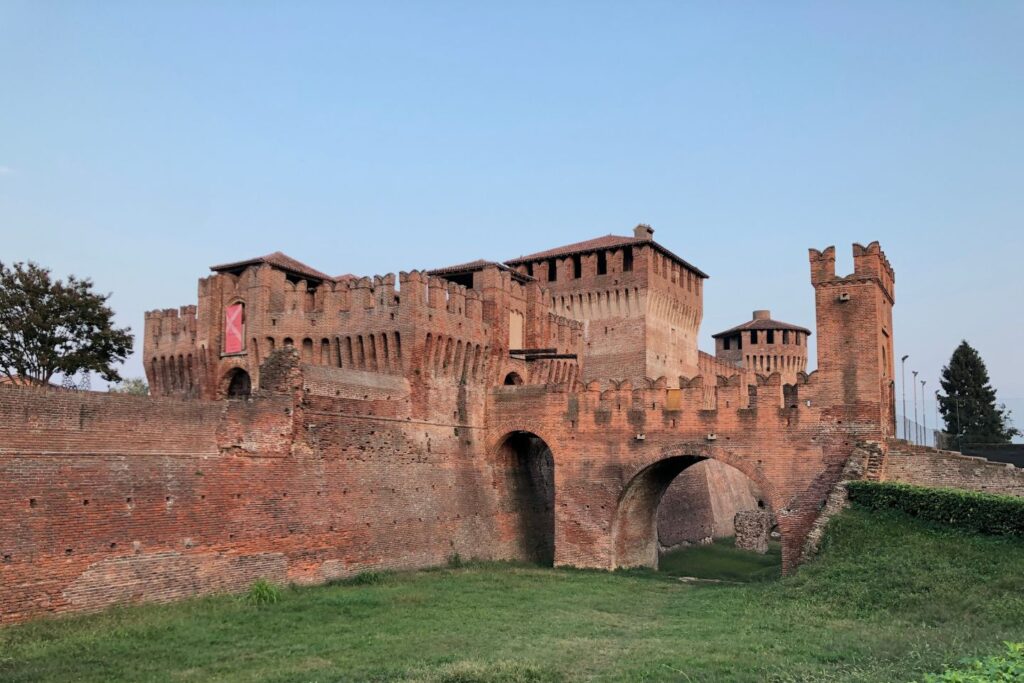
Where do you get your health care? Is local medical care good?
We get the majority of our health care on the economy, but we have access to the clinic on Caserma Ederle.
You hear a lot about free medical care in Italy, but with routine care, the only thing that is actually free is your general practitioner. If you get referred for anything else, there is a fee associated with it, but the costs are significantly lower than what you would pay in the States.
Also, If you have a serious condition, such as cancer, you receive an exception code, and all of your healthcare associated with that condition is free.
We have Tricare Overseas that pays 75%, and I also carry a Tricare Supplement that pays the other 25%, so our medical expenses are completely covered once the deductible is paid. With Tricare we do need to pay up front and file the claim, but thankfully we can do it all electronically.
| Related Reading: What You Should Know About Using TRICARE Overseas
Even with having to pay up front, costs are significantly cheaper than the States. For example, routine lab work is roughly 20 Euro, an MRI was 120 Euro, an ultrasound was 100 Euro, EKG 100 Euro, etc.
I also had a major surgery in 2020 that was just under $30K here compared to the same surgery in the States that I saw averaged around $55K.
I have an ongoing health issue that has required a lot of specialty care, and I have been both surprised and completely satisfied with the level of care I have received.
I carried my GS dental coverage over as well after I retired. Dental work is extremely expensive here. Cleanings are 100 Euro and up, and a night guard was 350 Euro. My wife’s crowns varied but averaged 400 Euro a piece.
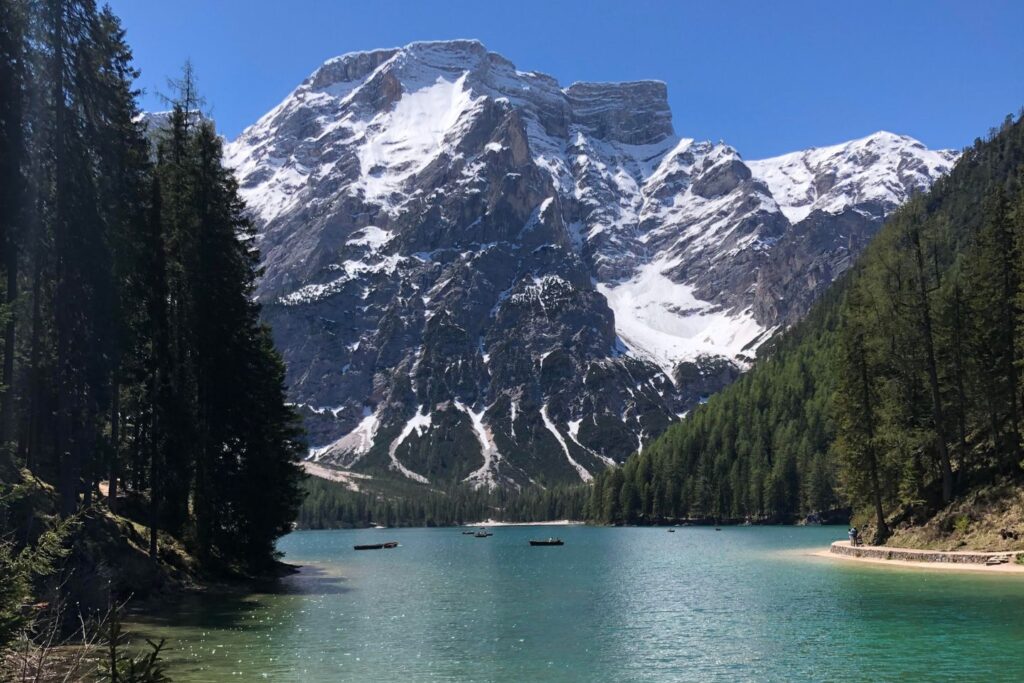
Does Italy tax your military retirement or other income?
Italy has a tax treaty with the U.S. and does not tax government pensions, which include military and GS pensions, unless you are a resident and citizen of Italy.
Italy does tax all other worldwide income, and the rate varies depending on the type of income. However, you can get most, but not all, of that back when you file your U.S. return. It’s complicated at best, and an accountant is needed to figure it all out.
Is there anything you wish you had known or done differently prior to moving to Italy?
The taxes and cost of gasoline caught me way off guard. It was quite the shock to start paying full price for gas after having been covered by the SOFA all those years and basically paying half price.
I was not expecting to have to pay taxes here as well as in the States, so I found that surprising and rather frustrating. As previously mentioned, the tax situation here is complicated, so a lot seems to depend on what you say or don’t say when doing an Italian return.
Tell us about daily life in Italy!
We live is a very small dairy and farming community, so shops, restaurants, nightlife, and public transportation are pretty limited. About the only nightlife here locally are bars and a pub, and there are only a couple of sit-down places to eat with limited menus. However, driving 15-30 minutes in just about any direction can get you to much larger cities and all the restaurants, pizzerias, and nightlife one could want.
There are a couple of mom and pop grocery stores that can fulfill basic needs and a major supermarket just 5 minutes away.
The average week here is pretty quiet, given the agricultural emphasis. Many of the older gentlemen pass their time at one of the bars chatting and not seeming to do much else. Since many locals were born, raised, and often stay here, the grandparents often double as the day care center, when available.
Many residents, myself included, have gardens and yards that keep us busy from spring through the fall growing seasons.
In addition to gardening, enjoying retirement, and spending time with my wife after all those years on the road, I enjoy walking 4-5 times a week, an aperativo a couple of times a week, and playing Ingress. Ingress is too hard to explain, so if interested, I would suggest you just Google it.
All in all though, life is pretty slow, quiet, and just the way we like it!
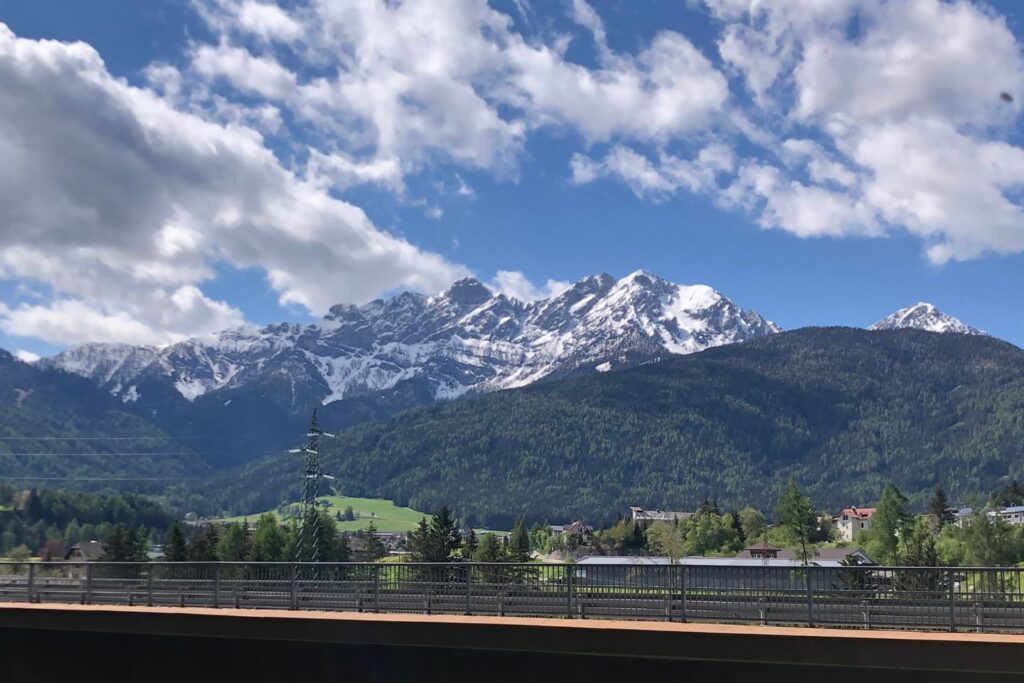
Do you feel “accepted” in the local community? If not, why?
I have been in and out of San Paolo in various aspects prior to retirement for the last 40 years, and once we were here a bit more frequently, have been accepted. With that said though, I know quite a few people and can join them at the table, chat on WhatsApp, on the side of the road, etc. But I am, and will always be, an outsider here.
I’ve mentioned that to my wife, and she says it is due to what I have previously mentioned. Folks are born, raised, stay, and pretty much die here. They have their cliques, so to speak, that I don’t fit into when they are all together in a group.
The other issue is when they are together, they speak to each other in the local dialect. I can easily hold my own in Italian but cannot speak — and understand very little of — the dialect.
So, aside from those cases, overall, I am well-accepted within the community. However, not being able to speak Italian here would definitely leave you out in the cold unless you found other expats or English speakers.
What do you like about living overseas, and specifically, about life in Italy?
We enjoy the slower lifestyle here in Europe and especially Italy.
For example, and unlike the States, when you go out to eat, your table is your table until you are ready to leave. You’re not asked, before you have even tasted your meal, if you would like anything else, and when you say no, you hear “No rush but here’s your check.”
Aside from driving, most aspects of life are much more relaxed, as a general rule here.
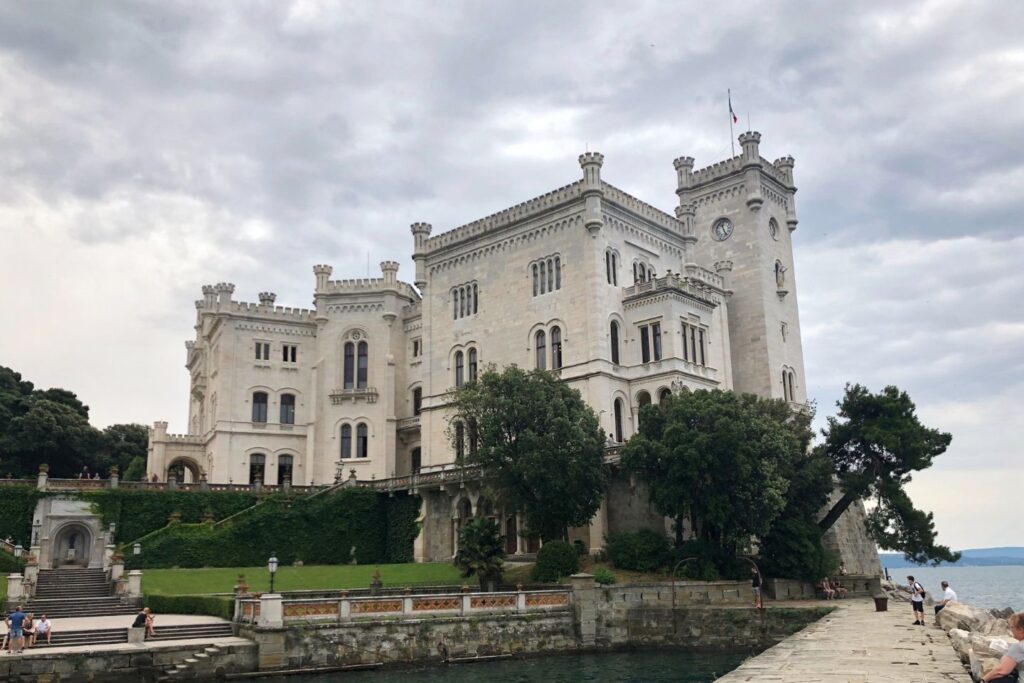
As for Italy itself, you can’t beat authentic Italian cuisine and pizza and of course, the wine.
Italy offers whatever you may be after. Beautiful beaches along the Mediterranean Sea to the west and Adriatic Sea to the east; the Dolomite mountains for hiking, skiing, and rock climbing; ancient ruins and historical sites; and big cities with museums, theater, shopping, etc.
If you are bored in Italy, it’s your own fault.
What are some of the challenges of being an expat and/or living in Italy?
Things were much simpler for me being married to an Italian and already speaking Italian versus moving to Italy alone or being married to someone outside of the Schengen area.
The lifestyle is slow and you often hear domani, which means “tomorrow,” but sometimes tomorrow never comes.
The bureaucracy is a killer, but once you accept that it is just the way it is, it becomes somewhat easier.
Also, it seems like only one person can do a certain job, and if they are not available, oh well. Not to mention, you will often get shuffled from person to person and get different answers for the same question depending on whom you ask or what region you are in.
Italy taxes worldwide income except for a couple of exceptions, so that is definitely a drawback, assuming you do what you are supposed to do.
The biggest drawback for an American expat seems to be the driver’s license situation. You cannot just exchange your U.S. license for an Italian license.
In order to get an Italian driver’s license, you must go to drivers school, take a theory test followed by a driving test . . . all in Italian and it’s not cheap. There are no exceptions, and it makes no difference if you have been driving for 2, 10, or 50 years. It’s what you have to do in order to drive legally.
But once you get past the initial hurdles of getting established here, resolve the drivers license issue, and learn to live with, or at least tolerate, the bureaucracy, Italy is very enjoyable.
What advice would you give to anyone who is thinking of moving abroad? Do you have any specific advice for Italy?
Italy is not the U.S. and you will do yourself a disservice and be in for disappointment if you think it is or that you can turn it into the U.S.
Failing to adapt to the language and local culture here will most likely end up causing you to not like it at all.
Also, the entire country of Italy is not Venice, Florence, Rome, Tuscany, or the other main cities that you visit and see so much about. Life in the non-touristy smaller towns is completely different, and it varies quite a bit between north and south.
I would suggest if you are thinking about moving to Italy that you first figure out what you are looking for and the area where you think you might want to live. Then, spend some time there to see if it’s what you had in mind.
Taking a stab in the dark or asking others on Facebook where you should go does not make any sense to me. Yes, it might be the right place for them, but that does not necessarily mean that it will be the right place for you.
What are your longer-term plans? Do you intend to stay in Italy for the foreseeable future?
Unless something pretty drastic happens, we will stay here for the duration. I am very comfortable here, and obviously, my wife is as well, so I just can’t see us moving again.
I have told many locals here when asked why I decided to come to Italy that “many go to America to find America, I found my America here.” I thoroughly enjoy the lifestyle and all that Italy has to offer. I have been very happy in retirement and have no desire or intention of going back to work.
* * *
Is Italy a good fit for YOU?
As David said, the best way to figure out if Italy (or any foreign country) is the right place for you is to go there and experience it for yourself! It’s a good idea to rent an apartment for at least a few weeks to learn what life is really like as a local. Use our guide to choosing a short-term apartment to find the best places to fit your needs.
If you’re still in the early stages of exploring your options for living overseas, get our Expat Destination Checklist for a list of important questions you MUST research before choosing a location!
All photos courtesy of David Adams.
